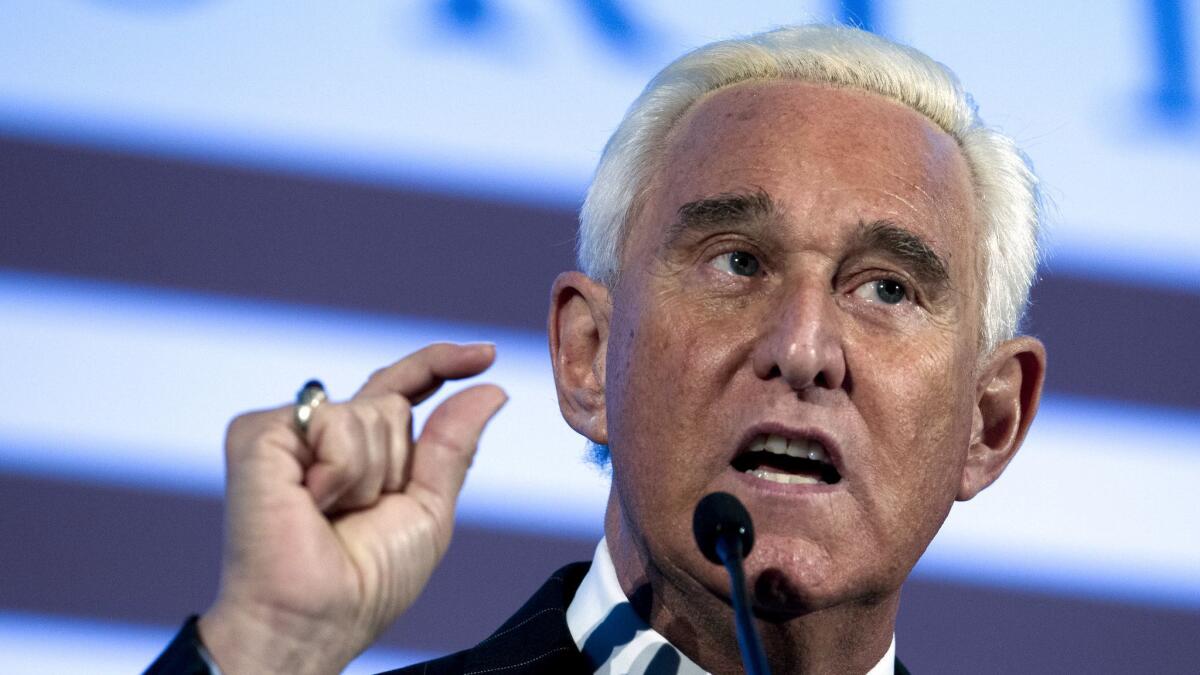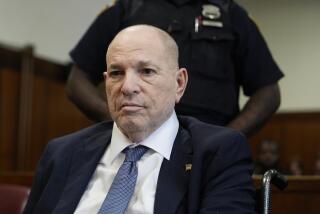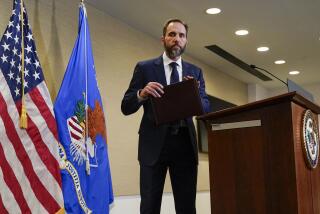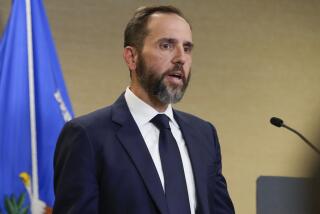Roger Stone’s indictment is all bun and no beef

- Share via
One of the enduring lessons of Richard Nixon’s fall from power is that the cover-up is easier to prove than the crime.
That lesson may have been lost on Roger Stone, a longtime Republican political operative who got his start playing dirty political tricks for Nixon’s 1972 campaign. Special counsel Robert S. Mueller III obtained a seven-count indictment Thursday against Stone for allegedly seeking to cover up his efforts to obtain damaging information about Hillary Clinton from WikiLeaks in 2016 to advance Trump’s candidacy.
The indictment is crystal clear when it comes to Stone’s alleged lies to the House Permanent Select Committee on Intelligence and his alleged attempt to bully another witness — unnamed in the indictment, but identified by The Times’ Chris Megerian as radio host Randy Credico — into deceiving the committee. What’s not so clear is whether Stone’s efforts made an iota of difference to the Trump campaign.
Trump’s defenders keep asking, “Where’s the beef?” — err, “Where’s the collusion?” The Stone indictment provides little of substance on that front, just more fuel for speculation.
Here are a few data points that U.S. investigators have already established. Hackers affiliated with Russian intelligence services are believed to have been responsible for two data breaches in 2016 that damaged the Clinton campaign: one targeting the Democratic National Committee and another that hoovered up emails to and from Clinton’s campaign manager, John Podesta. The DNC’s hacked emails were made widely available by WikiLeaks in July 2016, and Podesta’s in October 2016.
Enter the Fray: First takes on the news of the minute »
It’s still a bit of a mystery how WikiLeaks got the emails. The Stone indictment offers nothing on that point. It only suggests that Stone may have known about the first WikiLeaks email dump before it became public, and that his insights into WikiLeaks (referred to in the indictment as “Organization 1”) were subsequently sought by the Trump campaign:
“By in or around June and July 2016, Stone informed senior Trump Campaign officials that he had information indicating Organization 1 had documents whose release would be damaging to the Clinton Campaign …. After the July 22, 2016, release of stolen DNC emails by Organization 1, a senior Trump Campaign official was directed to contact Stone about any additional releases and what other damaging information Organization 1 had regarding the Clinton Campaign. Stone thereafter told the Trump Campaign about potential future releases of damaging material by Organization 1.”
But what, exactly, did Stone know? How did he know it? And how did that help the Trump campaign?
The indictment doesn’t offer much grist for those mills. It portrays Stone as operating on the fringe of the campaign, having trouble getting his calls returned by a top campaign official. It also suggests that he lied when he publicly claimed to have been briefed directly by WikiLeaks’ leader Julian Assange; Stone appears to have relied on conspiracy theorist Jerome Corsi and Credico for all his information about WikiLeaks. And the only useful tip Stone is accused of providing the campaign is advance knowledge that Wikileaks would make another Clinton-related data dump in October.
Perhaps that’s why Stone, whose official role as a Trump campaign advisor ended acrimoniously in 2015, had trouble getting his calls returned.
One of the more tantalizing allegations in the indictment is that Stone worked through Credico to ask Assange for any hacked emails he might have from Clinton herself or the State Department that could confirm an unspecified accusation about Clinton’s work as secretary of State. While the indictment asserts that Assange got the request, there’s no indication that anything came of it.
That’s the indictment in a nutshell. Stone comes across as someone who talked a good game about his insights into what WikiLeaks had obtained and what it planned, then allegedly lied to Congress about what he’d done and said. But Mueller’s team hasn’t offered much about what Stone actually knew and how he knew it, which seem like the most consequential questions.
More to Read
A cure for the common opinion
Get thought-provoking perspectives with our weekly newsletter.
You may occasionally receive promotional content from the Los Angeles Times.











